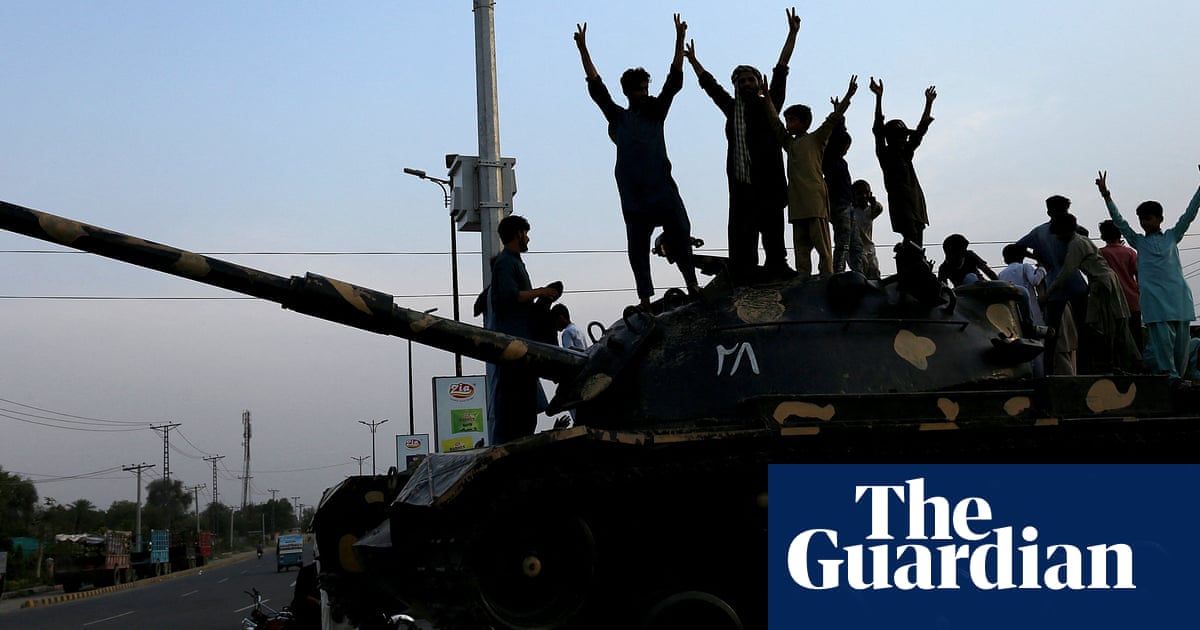India and Pakistan have agreed to a US-mediated ceasefire with immediate effect, ending days of escalating clashes between the two nuclear-armed countries, which had prompted concerns of a wider war.
The ceasefire was first announced by US president, Donald Trump, on Saturday afternoon, after 48 hours of diplomacy between India and Pakistan, apparently brokered by US secretary of state, Marco Rubio, and vice-resident, JD Vance.
Trump, in a post on his Truth Social platform, said: “After a long night of talks mediated by the United states, I am pleased to announce that India and Pakistan have agreed to a FULL AND IMMEDIATE CEASEFIRE. Congratulations to both Countries on using Common Sense and Great Intelligence. Thank you for your attention to this matter!”
The ceasefire was later confirmed in a post on X by Pakistani deputy prime minister and foreign minister, Ishaq Dar, who said that the ceasefire would come “with immediate effect”.
Indian foreign secretary, Vikram Misri, said the head of military operations from both countries spoke on Saturday afternoon.
“It was agreed between them that both sides would stop all firing and military action on land, and in the air and sea. Instructions have been given on both sides to give effect to this understanding.” The top military officials would speak again on 12 May, Misri added.
Rubio said the agreement follows extensive negotiations by him and Vance with Indian and Pakistani prime ministers, Narendra Modi, and Shehbaz Sharif, and other top officials.
“I am pleased to announce the governments of India and Pakistan have agreed to an immediate ceasefire and to start talks on a broad set of issues at a neutral site,” Rubio said on X.
“We commend Prime Ministers Modi and Sharif on their wisdom, prudence, and statesmanship in choosing the path of peace,” he added.
The ceasefire came after India and Pakistan accused each other of cross-border missile strikes against major military targets on Saturday, which had been the most significant escalation between the two countries in decades.
Earlier, India accused Pakistan of launching strikes on dozens of airbases and military headquarters across north India on Saturday, using long-range weapons, drones and fighter aircraft. The accusations came a few hours after Pakistan said India had fired six surface-to-air missiles targeting three of Pakistan’s most important military bases early on Saturday morning.
Shortly afterwards, Pakistan officials confirmed they had begun their counterattack against India, under the name Operation Bunyan Ul Marsoos, a phrase from the Qur’an roughly translating to “wall of lead”.
The claims of missile attacks on military targets deep inside India and Pakistan were seen as a worrying escalation in hostilities.
According to the Indian army spokesperson Col Sofiya Qureshi, Pakistan struck first on Saturday. At a press conference, the Indian army accused Pakistan of attacking 26 sites in India, including the Pathankot military airfield in Punjab, Srinagar airport and Udhampur air force base in Indian-administered Kashmir, as well as “deplorable and cowardly” attacks on civilian infrastructure.
Qureshi said the “Indian Armed Forces successfully neutralised these threats” but added that some damage was done to equipment and personnel at four airbases. The foreign secretary, Vikram Misri, said claims by Pakistani media that airbases and advanced weapons systems had been destroyed in the strikes were “heavy on lies, misinformation and propaganda”.
The Indian army alleged its attack on Pakistan’s military bases on Saturday was in retaliation for high-speed missiles fired at several airbases in Punjab at around 2am. “In a swift and calibrated response, Indian Armed Forces carried out precision attacks only on identified military targets,” said Qureshi.
In the hours after the missile attacks, both India and Pakistan said they were committed to de-escalation, if the other side agreed to stop their attacks.
Pakistan’s deputy prime minister and foreign minister, Ishaq Dar, told local media that if India stopped here “we will consider to stop here” and that the ball for de-escalation was in India’s court. India also said it was committed to “non-escalation” provided the Pakistan side reciprocated.
However, the Indian army claimed Pakistan was still mobilising its troops, in what they regarded as further aggression.
Pakistan’s version of events was different to that of India. In an address broadcast on state TV at about 3.30am, the military spokesperson Gen Ahmed Sharif Chaudhry claimed India had struck first, using fighter jets to fire surface-to-air missiles at Nur Khan, Murid and Shorkot military bases. He said the “majority” of India’s missiles were intercepted by air defence systems.
Nur Khan airbase is in Rawalpindi, where the military has its headquarters, and is about six miles from the Pakistani capital, Islamabad. In the aftermath of the strikes, Pakistan shut down its airspace.
The strike on Nur Khan caused mass panic in the densely populated area. Video from the scene shared on social media showed flames and smoke billowing into the night sky, with residents running into the streets. “There was a loud explosion which woke everyone up. It was so scary, everyone is still in a panic,” said one resident living nearby.
The fighting this week was first inflamed on Wednesday after Indian missiles struck nine sites in Pakistan, killing 31 people. India has said those strikes were in response to an attack in Indian-administered Kashmir late last month, in which militants killed 25 Hindu tourists and a guide, which they blamed on Pakistani-backed extremists.
The situation escalated further after India accused Pakistan of two consecutive nights of drone attacks. India claimed to have intercepted more than 400 drones targeting cities, military bases and places of worship across the north of the country on Thursday
In retaliation, India said it had launched four drone strikes at Pakistan, directly targeting military defence infrastructure.
The US-brokered ceasefire ended concerns over a spiralling cycle of escalation and of a wider war, which had prompted international concern. Earlier on Saturday, the G7 had called for both countries to exercise “maximum constraint.”

